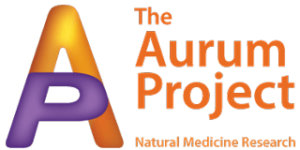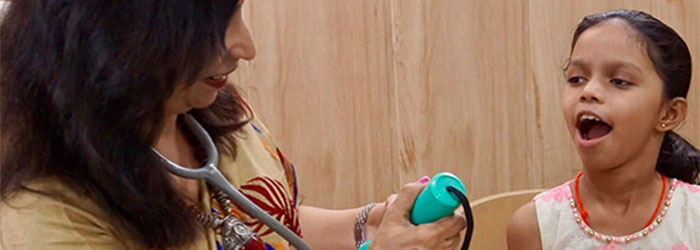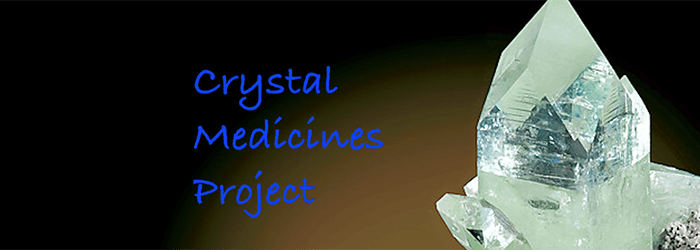Research Pods
What is an Aurum Project Research Pod?
The Aurum Project (AP) Research Pod (Pod) is a group of professional practitioners undertaking research. The purpose of a Pod is twofold. Firstly it is to build relationships between colleagues, and increase resilience within our profession of homeopathy. The second is the research activity the Pod undertakes together. Pods are different to traditional research teams in the way the Pod works together.
Pods operate under 3 guiding principles which align with the way AP works as an organisation to implement its mission. They are self organising, have evolutionary purpose, and ask the participants to be whole in their interactions. These three principles are the primary identifiers of a Teal Organisation.
AP Management Committee believes that it is critically important that AP members involved in pods are enabled to flourish, professionally and personally as they undertake the challenges of research.
A fundamental aspect of homeopathy practice and research is our ethical approach, and AP has a strong focus to support all of its Pod members to explore, learn and implement sound ethics in their research. Activities undertaken in Pods relating to ethics are eligible for CPD points.
Pods are driven by dynamic groups of practitioners as researchers who have a passion to learn more about health and homeopathy, and to serve the greater good of our communities. The Pod members bring their wide-ranging experience, resources and knowledge to the Pod and the unique dynamic that is generated by this diversity is enriching to all involved.
How do I get more involved in a research Pod with The Aurum Project?
For more information about how to join a pod or start one, please contact the Research Co-ordinator Dr Celeste Salter here
Current Pods
In August 2022 AP had 6 active Pod projects
| Pod Topic | Start | Main Contact Info |
|---|---|---|
| Teal Vision | August 2019 | Dr Celeste Salter contact the Research Coordinator |
| Recurrent Urinary Tract Infection | January 2020 | Dr Sabina Vatter contact the Research Coordinator |
| Systematic Review of Homeopathic Research in Australia since 1990 | April 2020 | Dr Sabina Vatter contact the Research Coordinator |
| Molluscum Contagiosum | September 2020 | Dr Sujata Naik contact the Research Coordinator |
| Water Project | Auspiced by AP | Jane Lindsay contact the Research Coordinator |
| Workforce Survey of Homeopathy in Australia | April 2022 | To be advised contact the Research Coordinator |
| AHA - AP Collaboration on Community Building | July 2022 | To be advised contact the Research Coordinator |
| Respiratory Diseases | July 2022 | To be advised contact the Research Coordinator |
| Crystal Medicines Project | August 2022 Auspiced by AP | Peter Tumminello contact the Research Coordinator |
Pod Pathway
Follow this short journey we call a Pod Pathway. This explains the more conventional aspects of research activity. Shortly we will have more information on the essential relational experiences AP members have when in a Pod.

Pod Pathway Explanation
Ideas, Melting Pots and Connecting Homeopaths
A Pod can arise from any of these three entry points:
Idea: You may have a research topic idea already in mind. You can make contact with the Research Coordinator here to discuss your idea, see if it is an idea aligning with our vision and mission, and explore the next steps.
Melting Pot: One of our occasional Melting Pot sessions might be the place you connect. In 2021 we ran a series of Melting Pots focussed on the First National Homeopathy Survey in 2018. Four research project ideas were formulated and in 2022, three of these were developed into research projects. Read more about Melting Pots on our website.
Connecting Homeopaths: This is the third pathway to join a research Pod. Meet colleagues, join in conversations and build relationships. The conversations could spark an idea that you are passionate about which in turn becomes a research idea. CH sessions run on the first Wednesday of the month on Zoom at noon Sydney time. You can join any time on our events calendar.
Invitation
After a period of initial discussion with the Research Coordinator, Director and other key people, an invitation is shared with our members to join in and form the Initial Pod.
Initial Pod Formation
A series of initial meetings with members interested in the topic occurs. The purpose at that stage is two fold, to see how the people fit and to explore the topic in more detail. Wholeness, bringing one’s whole self into the research activity and includes both professional and personal skills, is a key aspect of all Pod behaviour. It allows the Pod to operate more effectively as a self organising entity, and provides important connections for professional homoeopaths in Australia.
The Initial pod formation stages are facilitated by the Research Coordinator, or other experienced Pod members, who understand the Pod processes. As the Pod ethos starts to form between members and the Pod members find their feet in this dynamic space they begin to set their direction. During this phase, meetings occur most likely at fortnightly intervals, online.
Formal Pod Creation
There is a time in the project, where it is clear to all of the members that the project will proceed into a research activity. When this point is reached a formal Pod formation occurs. All Pod members ensure their membership with us is current, and complete relevant research agreements with us, upholding our research policies and procedures. These are standard policies that all researchers in Australia undertaking human research agree upon.
Ethics Module
At this time in the pathway, Pod members each undertake an Ethics Module. It is a 5 point CPD activity accredited with ARoH, and covers all of the requirements needed when undertaking research with humans. A specific section addresses the research topic of the Pod. This information is given back to the Pod to assist their research proposal creation process as well as their ethics application.
Research Question, Blog, Literature Review
The research idea and question are related but not identical. Research projects require clearly defined research question(s) and a review of literature helps to identify whether the question being asked is worthwhile and necessary. These three stages of activity occur again with iterations and refinement as the Pod works through the existing research and what it reveals about their topic and what question their idea might answer. A researched article is published on the AP Blog and is one of the first activities the Pod will undertake together. As the Pod grows in maturity it will complete a research proposal which will guide its research activity.
Read About These Current Research Projects
Workforce Survey
Formed to initiate and conduct a yearly workforce survey of Australian practitioners. This activity is in partnership with Australian Register of Homeopaths (ARoH). The WFS Pod undertook to create the research proposal that will guide this project. A poster was accepted for the AHMC Conference in November 2023 in Brisbane.
Solomon Islands Water Project
A project under the auspices of the Aurum Project
The one hundred year legacy of using ‘Homeopathy by Numbers’ in the Solomon Islands, has enabled these remote islands to remain largely self-sufficient in their health care.
The work was presented at the Australian Homeopathy Conference in Brisbane in November 2023 as a Poster Presentation.
Molluscum Contagiosum
A collaboration between Dr Sujata Niak's Clinic in Mumbai and Aurum Project members from NSW is exploring similarities and differences between the Indian and Australian context in the treatment of Molluscum contagiosum using homeopathy. Dr Sujata Naik’s team is committed to homeopathic practice and research.
Urinary Tract Infection
We’ve set out the research question and started working on the homeopathy research tools for Urinary Tract Infection (surveys, consent forms, information sheets, ethics application) we will need in place to conduct the study. Once we are ready to launch, look out for our call to participate as we will need case studies from our colleagues to review.
Teal Vision
The Teal Vision Pod was set up in 2021 to explore Teal Organisational Theory and Self Determination Theory that we have implemented in how we do research at The Aurum Project. We are using Teal Theory in all of our research activity and assessing the benefits it brings to our members.
Systematic Literature Review
The work on a Systematic Literature Review of Australian Homeopathy Research articles by Dr Sabina Vatter, Linlee Jordan and Dr Celeste Salter continues. Currently all papers have been collated and the process of assessment is underway. We will measure and categorise the extent of research activity conducted in Australia by Australian practitioners and researchers since 1990.
The Autism Support Project
The Autism Support Project was set up in 2013 in response to the increase in ASD children and because parents are searching for answers in natural therapies. Selected practitioners have been recognised because of their experience and training in this field. They have participated in a process of peer review to become Autism Support Project Recognised Providers.
Crystal Medicines Project
A project under the auspices of The Aurum Project.
This project is to collate and disseminate the many years of proving (experiments to enable clinical use in homeopathy) work carried out on medicines made from crystalline substances. The work has been inspired and directed by Peter Tumminello, a Sydney based homeopath. It has been undertaken by many groups of homeopaths from Australia, New Zealand, Europe and the UK over a period of 30 years. Its aim is to enable doctors, homeopaths and natural medicine practitioners from around the world to use these medicines in everyday practice.

Respiratory Project
Despite the availability of effective treatment, the current use of asthma medications in children is suboptimal due in part to a lack of parental knowledge (despite existing asthma education programmes). Running parallel to this is the increase of complementary and alternative medicine (CAM) and parental nondisclosure of this use to their Doctor.
This project aims to strengthen asthma education in an education handbook including myths/ benefits /how/ why/ when of CAM usage. When it is designed by a CAM organization parents who use CAM, may have increased trust in the message.










